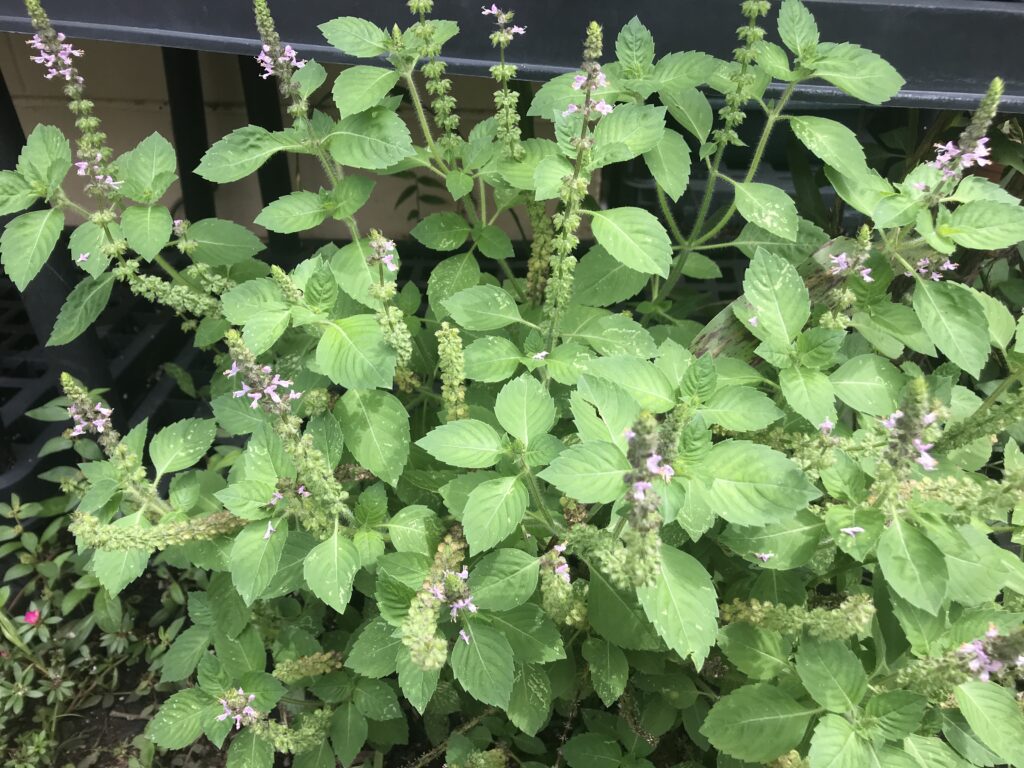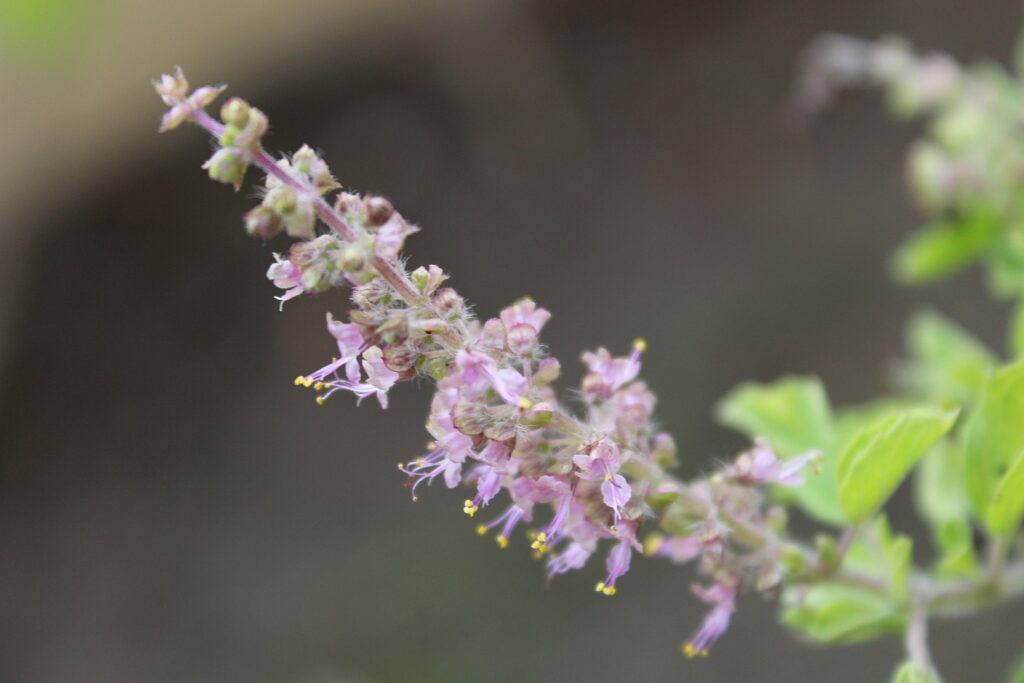
Tulsi, Holy basil,
Ocimum tenuiflorum, or Holy basil, is a small perennial shrub growing 1-2 feet tall and producing tall spears of delicate and sweet-smelling light purple flowers.
Holy Basil Benefits
- Highly attractive to pollinators
- Easy to grow and seeds prolifically
- Provides numerous health benefits
- Excellent for flower arrangements
- Smells like a happy childhood
Holy Basil Description
Holy basil, also called Tulsi provides excellent blooms and is perfect for any herb or cottage-style garden. Honeybees and native bees find it irresistible, so it also makes an excellent companion plant for vegetable gardens that rely on pollinators.
Tulsi is considered sacred in the Hindu religion, hence the name “Holy basil,” and it plays a significant part in religious rites and Ayurvedic medicine.
Holy basil has significant documented health benefits and is rich in important phytochemicals. Traditionally known as an excellent herb for depression, it is primarily and adaptogen, providing cellular-level protection from physical, mental, and even dietary stress.
Tulsi also has anti-bacterial, anti-viral and anti-fungal activity when used in both humans and animals, making it suitable for treating family, pets, and livestock.
It may also prove useful in metabolic disorders, such as Type II diabetes, Metabolic Syndrome, and obesity.
Its scent is uplifting, making it an excellent herb for aromatherapy.
Tips for Germination
Ocimum tenuiflorum is native to India, which means it performs best in subtropical or tropical climates. Sow seeds indoors at least 6 weeks before your last frost date and place in a warm area of your home. You may even want to use a heating mat. You can also sow directly outdoors once temperatures remain above 65F to 70F.
Sow seeds on the top of rich, moist seed-starting medium and tamp down to ensure good contact with the soil. Cover very lightly with a sprinkle of soil or vermiculite. Because Tulsi seeds are so small, its best to bottom-water seed starting trays to prevent dislodging them.

Buy Tulsi / Holy Basil Here
| Species Name: | Ocimum tenuiflorum |
| Common name(s): | Holy basil, Tulsi |
| Defining Characteristics: | Small shrub of 1 to 2 feet tall with flowering spikes of lilac. |
| Temperature requirement: | Sow seeds at 68F to 70F |
| Watering frequency: | Keep moist and water weekly during the active growing period. Water infrequently during winter dormancy. |
| Lighting: | Full sun, but will tolerate partial shade |
| Soil type: | Prefers rich, moist soil |
| Growth rate: | Grows quickly and is suitable for annual planting in temperate climates |
| Height: | 1 to 2 feet tall |
| Origin: | India, naturalized in subtropical and tropical climates |
| Regional locality: | India |
| USDA Hardiness Zone: | 9-11 |
| Toxicity Notes: | This plant is considered non-toxic to humans, and is commonly eaten and used in home remedies as well. For more information please visits the ASPCA list of Toxic and Non-Toxic Plants list of Toxic and Non-Toxic Plants |
| Common Pests: | mealy bugs, aphids, spider mites, and sometimes whiteflies |
| Common Problems: | Can be prone to fungal disease |
| Perfect Potting Companions: | |
| Additional Notes: |
